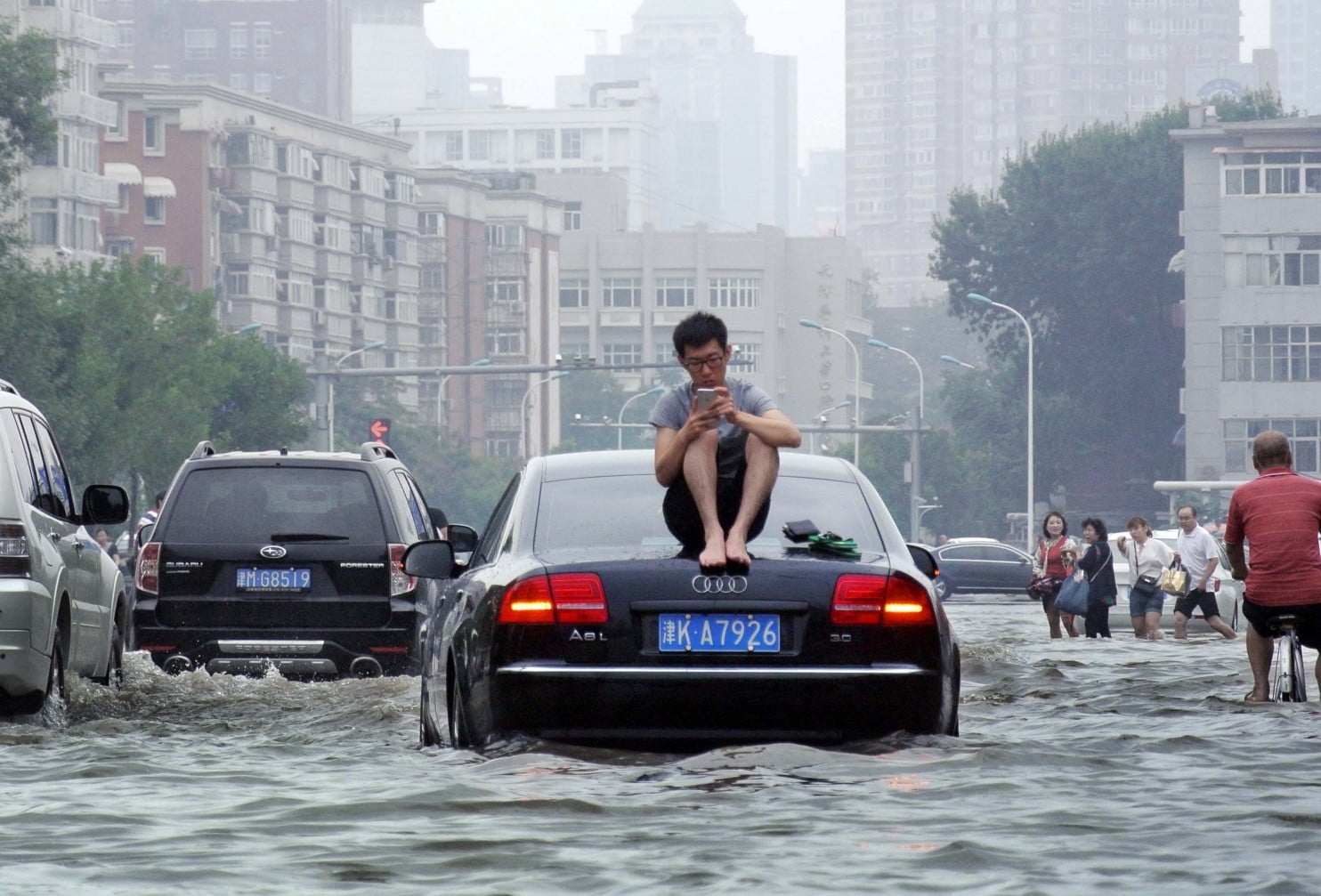

FLOODING RAVAGED parts of north and east China this month. More than 150 people were killed by landslides and surges of water. In one of the worst-hit provinces, Hebei, people in the town of Xingtai, where at least 25 people died, demonstrated against the government for failing to warn them of the flooding and for ineffective rescue attempts.
Just as the flood news began to spread, China’s cyber-regulator ordered some of the country’s most popular Internet portals to halt much of their original news reporting. The Cyberspace Administration of China demanded that the portals no longer produce their own journalism and that they simply republish sanitized material from Communist Party mouthpieces, the People’s Daily and the news agency, Xinhua.
These two events are not unrelated. The profit-making Web portals had in recent years not only aggregated news and run social media and messaging services, but begun to hire good reporters and carry out their own investigations, racing ahead of the state-owned media on topics such as disasters, industrial pollution and tainted milk powder. For years, they operated openly but in a legal gray area, rushing out new information when they could to meet the huge demand for news from China’s 600 million Internet users. A similar thirst for news helped propel Chinese social media outlets into an important role as news platforms when disasters struck, such as the Wenzhou train wreck in 2011.
But now, under President Xi Jinping, the Chinese party-state is suffocating these outlets. The latest order came July 25, instructing the Web portals to close down four popular news features at sites run by Sina, Sohu, Phoenix and NetEase, implementing a regulation that was published earlier in the month. China has long used news censors to block individual broadcasts and articles, and dictate coverage to reporters and editors, but this new order goes further, wiping out a whole sector in which original news reporting had been thriving. The upbeat information that China’s leaders want to disseminate was amply displayed by Xinhua’s flood dispatch, which emphasized soldiers “braving the elements” to save lives, the president ordering “all-out efforts to control and fight floods” and China “moving heaven and earth” to clean up.
This stale reportage that does not challenge the authorities or embarrass them is what Mr. Xi had in mind in February when he made a series of high-profile visits to party organs and declared they must serve the party with absolute loyalty and must “have the party as their family name.” Those that don’t want to have the Communist Party as their family name were just unplugged. There is no question that China’s rising middle class and its legions of Internet users want unfettered information and news. They just lost a valuable source of both. But they aren’t likely to give up; probably they will seek out and find still other channels for uncensored truth about their country and the world.
[source:- The washington Post]





